
4 Natural Antibiotics that Can Replace Over-the-Counter Drugs
Our bodies need to fight off all sorts of infections throughout our lifetime. Whether we have a strong immune system or not, we can still experience infection due to the different bacteria, fungi, and viruses that we encounter. While viral infections cannot be treated by any form of medical antibiotics, bacterial and fungal infections can be.
Many of us are now resorting to alternative treatments such as the use of herbal remedies to treat certain diseases as well as infections. The use of such natural remedies provides a safer approach that has lesser side effects compared to pharmaceutical drugs. But when it comes to antibiotics, are there any natural substitutes that work well?
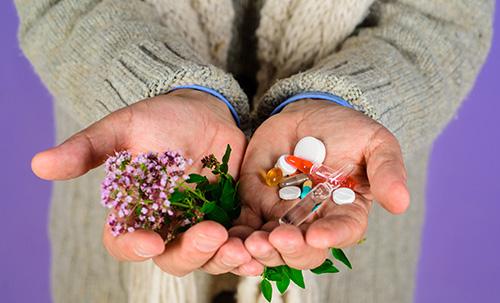
Some may question how potent they are. But I tell you this: before pharmaceutical companies were able to manufacture medical-grade antibiotics, our ancestors have been using herbal remedies for centuries. Thus, the efficacy of these natural substitutes has been tested and proven over the years.
1. Oregano
Oregano is one of the most effective natural antibiotics, especially if it is converted to essential oil. It contains carvacrol and thymol, which are known to be antibacterial and antifungal compounds. Thus, you can be assured that with these properties, oregano can fight against bacterial and fungal infections. Moreover, it has properties that activate therapeutic healing in the body when inhaled.
Furthermore, oregano has shown to be effective in fighting bacteria like E. coli and Pseudomonas Aeruginosa. E. coli may cause intestinal infection while Pseudomonas Aeruginosa is the culprit for urinary tract infections and pneumonia.
- Use for fungal skin infections. Mix 1-2 drops of oregano essential oil with water or coconut oil or olive oil. Apply this to where the fungal infection on the skin is.

- For sinus infections. Add a few drops of oregano essential oil to your diffuser.

When using oregano essential oil, it is important to make use of 100% therapeutic and organic oil. This is to ensure that no harmful chemicals are added in the manufacturing of the oil that may cause more harm to your body than heal. In addition, you must also keep in mind not to ingest the essential oil in any way nor use it on your skin if undiluted.
2. Garlic
Many of us are aware of how useful garlic is; not only for the kitchen but also for our well-being as well. There are many uses of garlic, and one of them is being a natural antibiotic. It has antimicrobial properties and is even considered as a possible treatment for people suffering from tuberculosis, which is a multi-drug resistant disease. Garlic contains allicin and other chemical compounds that are great at fighting infection-causing pathogens.
Garlic extract is safe to ingest. However, you should not take it in large doses as it may cause internal bleeding. There are many ways to take garlic:
- Eat 1-2 cloves of raw garlic every day. When doing so, chop or crush raw garlic. Wait for 10-15 minutes before eating so that it has enough time to convert to allicin.
- Use garlic oil for cooking. Instead of your regular oil, you can make your own version of garlic oil and use it for cooking. To do this, soak several peeled garlic cloves in oil. I prefer using olive oil because I find it healthier. Heat the mixture while keeping the heat low. Let it stay for 30 minutes or until the garlic flavor has been infused with olive oil.

- Apply on wounds to prevent infection. Simply crush a few garlic cloves and apply it directly over the wound.

Before taking garlic as a natural antibiotic, make sure that you talk to your healthcare provider first. Some medications such as blood thinners and medical conditions like stomach ulcers may interact with garlic. Thus, talking to a physician prior to using garlic is a must.
3. Ginger
Ginger is known to fight a lot of bacterial strains, which makes it a great natural antibiotic. It has been used in Ayurvedic and Traditional Chinese Medicine (TMC). What makes ginger a potent antibiotic are compounds such as terpenoids, shogaol, gingerdiol, and gingerol among many other properties. Ginger is known to remedy diseases like gum disease, tonsillitis, pharyngitis, and H. pylori infection. It can also remedy fungal infections such as athlete’s foot since it has antifungal properties.
- Chew on fresh ginger root. Peel ginger root and slice an inch of fresh ginger. Chew twice or thrice a day.
- Make ginger tea. Steep 2 teaspoons of fresh or dried ginger in 1 cup of hot water for 5 minutes. Strain the leaves and drink the tea. Make sure that the temperature isn’t too hot to burn you. You can drink ginger tea for up to three times a day.

Ginger is likely safe when taken accordingly in recommended doses. However, for people with bleeding disorders, diabetes, and heart conditions, taking ginger might make your condition worse. Thus, you need to check with your physician first before taking ginger as a natural antibiotic and remedy.
4. Echinacea
On a personal note, one of my most trusted choices is Echinacea. Even my doctor once prescribed me with an Echinacea supplement when I was sick from a respiratory infection and had to recover soon due to prior commitments. A study of Echinacea purpurea that was published in the Journal of Biomedicine and Biotechnology stated that its plant extracts can kill different kinds of bacteria like Streptococcus pyogenes, which causes diseases such as pneumonia, scarlet fever, cellulitis, pharyngitis, and rheumatic fever, among others.
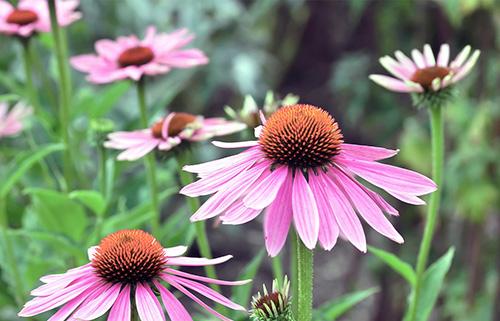
It has been reported that once Echinacea is taken during the start of the appearance of symptoms, it would help lessen the duration of illness even without taking antibiotics.
You may use flowers, leaves, and roots of the Echinacea plant. However, it is believed that the roots contain the most active compounds that fight infections and diseases. Gather the parts you need and wash and dry them. Drying may take days unless you have a drying machine. Once dried, store them in different airtight containers.
- Echinacea root decoction preparation. Simmer 2 teaspoons of dried Echinacea root in one cup of water for 20-30 minutes. Strain the roots before drinking.

- Echinacea petals and leaves infusion. Steep 1-2 teaspoons of dried petals/leaves in boiling water for 15 minutes. Strain and drink. Make sure that the temperature is tolerable for you before drinking to avoid getting burnt.
Echinacea is meant for short-term use only. It is not recommended to use Echinacea for long as it may lead to possible side effects. People who have allergies to flowers like chrysanthemums, daisies, marigolds and ragweed may also experience allergic reactions to Echinacea. Moreover, if you are taking immunosuppressive drugs or have an auto-immune disease, consult your doctor first before use.
The use of natural antibiotics has been around for thousands of years. Before pharmaceutical antibiotics came, our ancestors have used these natural remedies to treat infections. Hence, if you have one of these in your garden, treat it with care as it can act as your natural antibiotic against infections.
You may also like:
 50 Health Tips Every Person Over 50 Should Know
50 Health Tips Every Person Over 50 Should Know
Stop Spending Money At The Pharmacy By Growing These 10 Plants (Video)
How To Prepare Medicinal Pickled Garlic
Homemade Ginger And Chickweed Poultice For Circulation And Sore Muscles


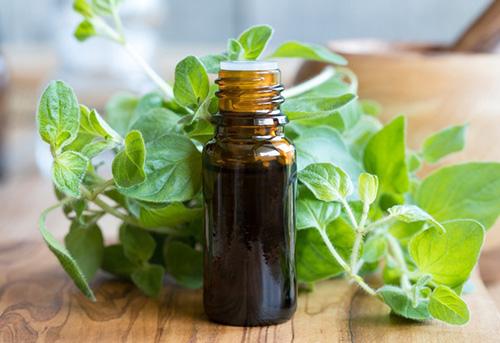
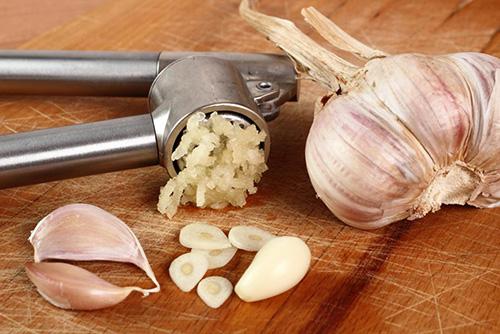

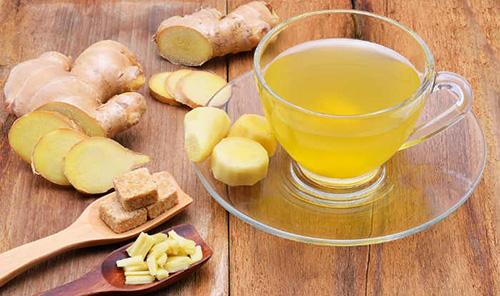

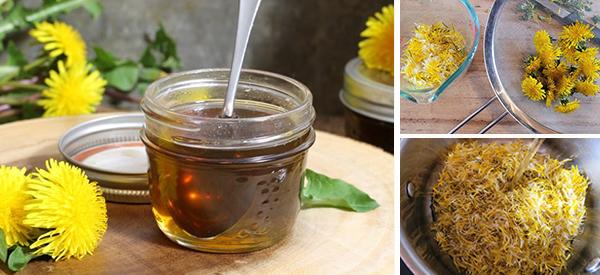


thanks for the helpful information
Hi Leonide,
Thank you for your comment.
We are glad to hear that you found the article useful.
God bless!
I know of some people that take echinacea syrup daily to ward off the flu. Is this wrong? I wanted to do the same thing but you state not to take it for long periods of time.
Hi Blanca,
Thank you for your comment.
Drinking Echinacea tea for a long period may lead to possible side effects especially for those prone to allergies.
But if you feel ok, you can definitely drink echinacea tea or syrup daily.
God bless!
Can you diffuse oregano oil to help with someone who has the co vid virus?
I am having trouble finding, how long can a person take Oregano internally?
Where can I purchase the garlic and Oregano oils for a use against a UTI?
I get my oils from Jade Bloom. They state pharmaceutical grade.on what can be ingested.
This is some really good information. Since I bought Nicole Appealians book I have been looking at our property very differently now just to see what grows here.
Thank you
Would like to know if pinecone ginger root is the same as the ginger root bought in stores?? Thank you in advance.
I read moles can be removed by applying 1 drop of oregano oil daily directly onto the mole (NOT the surrounding area). I tried it and within 2 weeks the mole had completely dried up and was gone, there was no remaining sign it had ever existed.
I’mm so happy to have found this. Are these suitable for UTI infections?